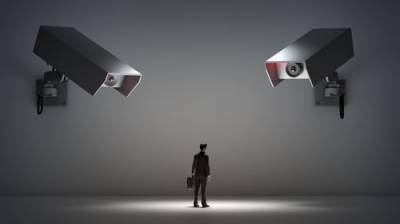How Decisions in a Secret Court Affect People’s Rights in Criminal Cases
 In the United States, people expect the legal system to be open and honest. Legal documents filed in court and the decisions made in legal proceedings are made available to the public, providing people with an understanding of their rights and how the laws are applied in specific situations. However, one of the most important courts in the U.S. operates under a veil of secrecy. Even though its decisions affect the types of surveillance that law enforcement officials can use in criminal cases, these decisions are not always made available to the public. Criminal justice advocates have raised concerns about how this secrecy affects the civil liberties of people in the United States.
In the United States, people expect the legal system to be open and honest. Legal documents filed in court and the decisions made in legal proceedings are made available to the public, providing people with an understanding of their rights and how the laws are applied in specific situations. However, one of the most important courts in the U.S. operates under a veil of secrecy. Even though its decisions affect the types of surveillance that law enforcement officials can use in criminal cases, these decisions are not always made available to the public. Criminal justice advocates have raised concerns about how this secrecy affects the civil liberties of people in the United States.
Decisions by the Foreign Intelligence Surveillance Court
The Foreign Intelligence Surveillance Court (FISC) was created in 1978, and it was given the power to oversee the types of surveillance conducted by officials in matters related to national security. While the court initially had a narrow focus, authorizing a few hundred wiretaps each year, its powers were expanded significantly following the terrorist attacks on September 11, 2001.
This expanded role occurred at the same time that new forms of technology became available that allowed for mass surveillance of millions of people. As government officials have begun to collect data about people’s communications and activities, the court has authorized a number of programs that have affected people’s privacy rights. The FISC has allowed the National Security Agency (NSA) to collect records of phone calls made within the United States and between the U.S. and other countries, including details about who made calls, when calls were made, and how long they lasted. It has also allowed government agencies to scan people’s emails and collect information about messages people have sent online. In many cases, these forms of surveillance have been authorized without the need to show probable cause or suspicion of criminal activity.
Unfortunately, many of the decisions made by the FISC are not released to the public. While the U.S.A. Freedom Act, which was passed in 2015, has allowed for the declassification of some of the court’s opinions, it does not require the decisions by the court to be made public. Even though the First Amendment states that the public has the right to view court decisions, the FISC has stated that it is exempt from these requirements because it deals with matters of national security. This means that many Americans do not know whether they are subject to government surveillance and how the evidence obtained may be used in cases involving federal crimes.
Contact Our Hartford Federal Crimes Defense Attorney
The Woolf & Ross Law Firm, LLC provides legal help to those who are facing federal criminal charges, and we fight to protect our clients’ rights regarding evidence obtained through wiretaps or other forms of surveillance. We can help you understand the best defense strategies that will allow you to minimize the potential consequences you could face. Contact our Connecticut criminal defense lawyer and set up a free consultation by calling 860-290-8690.
Sources:
https://knightcolumbia.org/blog/what-is-americas-spy-court-hiding-from-the-public-1
https://www.theguardian.com/world/2013/jun/06/nsa-phone-records-verizon-court-order






